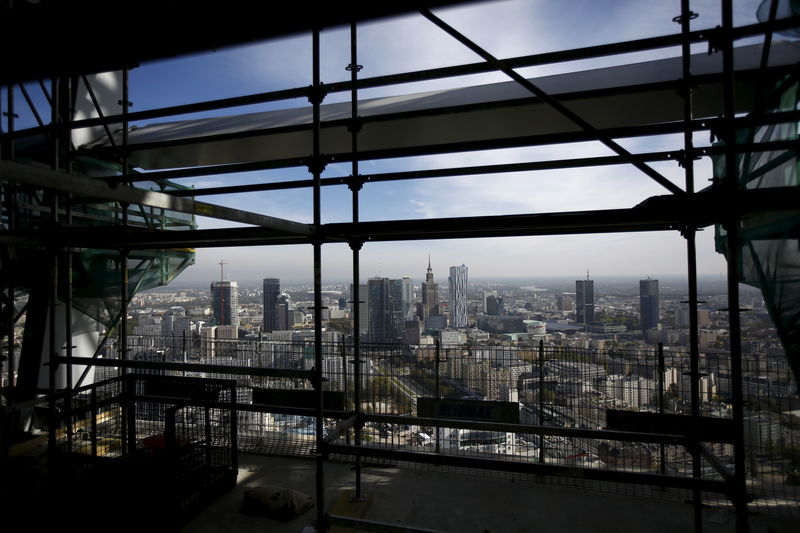By Marcin Goettig
WARSAW (Reuters) - Central and eastern European economies grew robustly in the third quarter despite China's slowdown and prospects for a U.S. interest rate hike, helped by low oil prices which left more cash in the pockets of consumers.
Initial estimates released on Friday showed growth in Poland, Czech Republic, Romania and Bulgaria beat expectations, but disappointed in Hungary as expansion slowed in the country's manufacturing while agriculture output contracted.
"Today's ... data confirmed that the Central and South Eastern European economies continued to grow robustly, despite fears of a widespread emerging markets slowdown," Capital Economics said.
All of the economies of the region are oil importers and benefit from commodity prices plunging to 7-year lows.
"Consumers have been supported by lower oil prices, which has boosted real incomes, as well as more supportive monetary and fiscal policy," Capital Economic said.
Poland, which accounts for about 40 percent of regional output, accelerated to an annual 3.4 percent in the third quarters, slightly beating analysts' expectations. In quarterly terms, growth picked up to 0.9 percent.
A breakdown of growth in Poland and other countries in the region was not available on Friday and will be published in the coming weeks.
ADDITIONAL EASING
Markets have begun pricing in additional monetary easing in Poland after the country's socially conservative Law and Justice party (PiS) won the October election. One of the party's senior lawmakers has said there was space for 25-50 basis points of rate cuts.
"The economy started the second half of the year in a good shape," said Tomasz Kaczor, chief economist at bank BGK.
Kaczor said the GDP data did not indicate the economy was in need of additional stimulus, but said such stimulus was still likely as the PiS-controlled parliament will name eight out of ten policymakers in early 2016.
The Czech economy, supported by interest rates near zero and central bank ceiling on crown strength, grew by 0.5 percent in the third quarter, more than double the expected pace, driven by investments as well as higher foreign and domestic demand.
The estimate extended a string of forecast-beating data for the Czech economy, boosted by record inflows of European Union subsidies into development programmes. On a year-on-year basis, gross domestic product (GDP) grew for the eighth quarter in a row, expanding by 4.3 percent.
In Hungary, growth slowed to an annual 2.3 percent in the third quarter from 2.7 percent in the second, falling short of market expectations at 2.5 percent.
In turn, Romania's economy grew by 3.6 percent on the year, above market expectations.
"We believe that strong consumer spending and the ongoing investments revival helped," analysts at ING Bank in Bucharest said. "Supply-side data should show mostly services, but also constructions and industry, positively contributing to economic growth."
